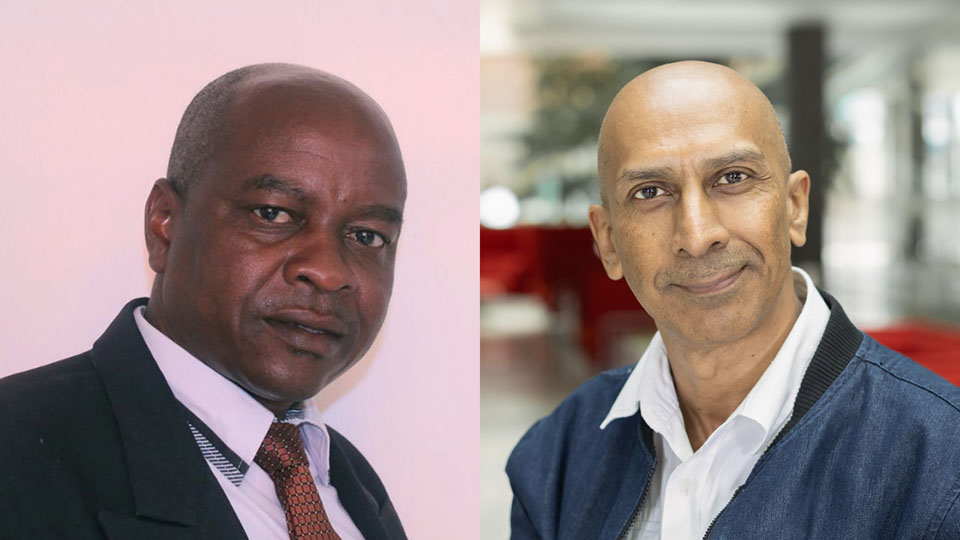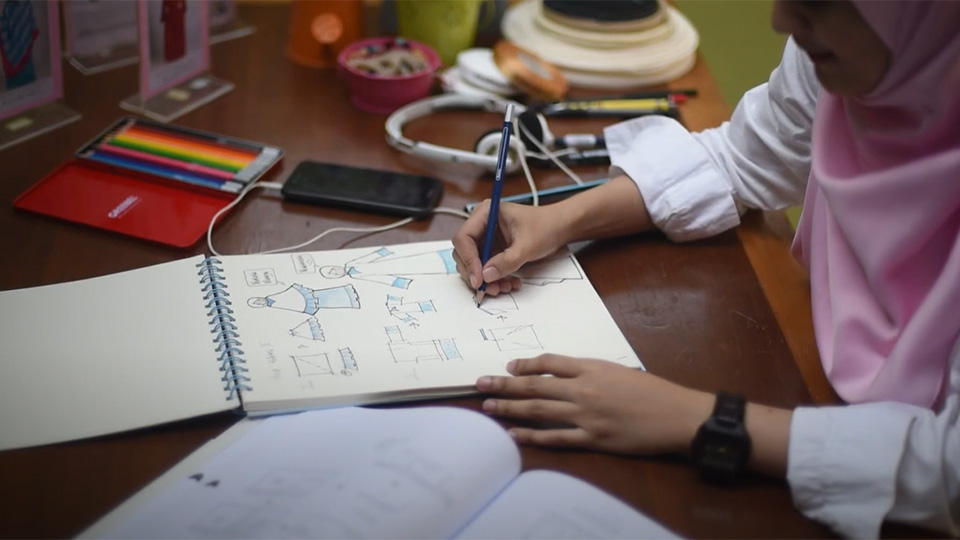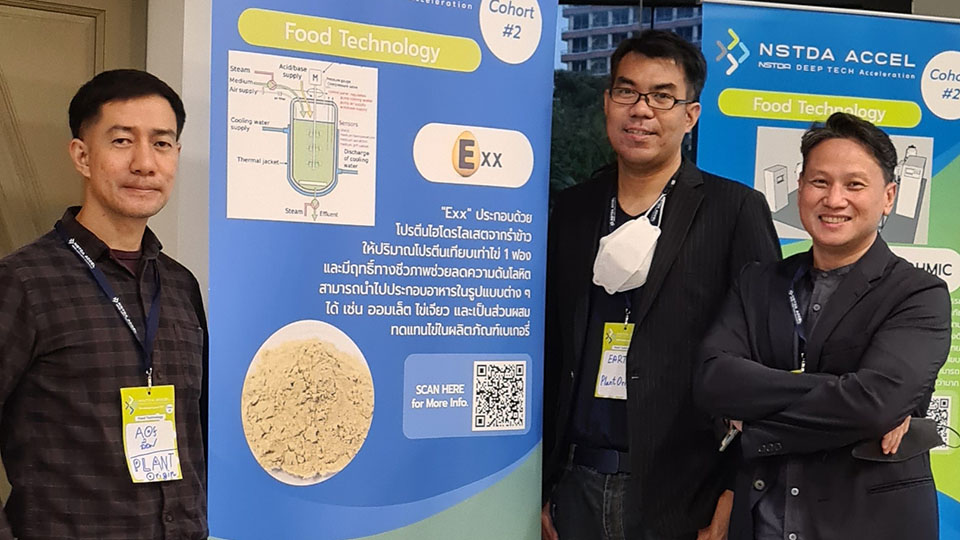Disruptive Low-Energy Fruit Processing Invention to Help with Agricultural Waste in Viet Nam
Being a researcher and a lecturer just was not enough for Dr. Nguyen Minh Tan. She stepped out of the lab to find out how her invention could best serve Vietnam’s agricultural sector, juggling between her academic career and a brand new startup to commercialize her zero waste, low-energy fruit processing patented technology.

Dr. Tan grew up near the University of Science and Technology in Hanoi. When she was in high school, at the turn of the 1990s, there was very little information about university studies, no internet, and no counseling. “At that time only 10 to 15% of high school students went on to study at university.”
She saw the students attending the university nearby and had a glimpse of the machines they were working with. She set up her mind to be accepted and study at the University of Science and Technology and hoped she would find her calling. “I feel very lucky that it was a perfect fit,” she said.
After a Master’s degree in chemical engineering, a Ph.D. at the Technical University of Dresden, Germany, and post-doctoral research at the Johannes Kepler University of Linz, Austria, she came back to where it all began: the University of Science Technology. She is now an Associate Professor at the School of Chemical Engineering and the Director of the Institute for Research and Development of Natural Products (INAPRO) at the same university.
Stepping Out of the Lab, putting Fruit-Processing to good use
“Until 2016,” she said, “I was a typical scientist, providing lectures, doing research with international and national funding.” “I was moving in a safe environment.” However, something was missing. “I saw that I could do more with my innovation.” “I wanted to help solve current issues in Vietnam.” “Doing research and publishing just was not enough,” she said. In particular, she wanted to put her fruit-processing concept in the hands of producers.

Teaching future engineers in her class, Dr. Tan also wanted to be an inspiration and give her students the chance to see real-life projects and get involved.
Disruptive Multi Product Juice Evaporation to limit agricultural waste
Her multi-product Juice Evaporation (JEVA) innovation sought to address agricultural production waste. Most of Vietnam’s production serves the national and international markets in fresh produce. Whatever is not sold, is wasted.
After a pilot project in 2016, she launched the JEVA Technology in 2018. From 2019 to 2021, she worked on a smart and mobile unit incorporating the JEVA Technology: the Smart and Mobile fruit-processing concept: SMoJEVA. In January 2022, she co-founded Woltan Engineering and cooperated with former mentor Dr. Wolfgang Samhaber, a Professor in Process Engineering at Johannes Kepler University to commercialize SMoJEVA.
Smart and Mobile Fruit Processing Service
From Fruit to Juice Concentrates and Flavored Water
The JEVA technology transforms fruit juice into fruit-flavored bottled water, and juice concentrates. The process evaporates fruit juice at a moderate temperature (under 45°C) and ambient pressure, cutting the energy needed by 80% and preserving most vitamins. Standard methods involve cooking or boiling the juice to induce evaporation, which is energy-intensive and destroys vitamins.
The process is also zero waste as both concentrate and condensate are products, she explained.

Over the last two years, Dr. Tan worked on different fruits, including passion fruit, dragon fruit, orange, pomelo, and coconut, consulting with producers and providing them with samples to test with their customers. She used the feedback and all the data she collected to improve her system now monitored and controlled with IP protocol and optimized by artificial intelligence.
“It is important to understand customers and work with them,” she said, adding “sitting in your office at the university, you might think the technology meets the demand, but in real life, it doesn’t.”
Dr. Tan and Dr. Samhaber developed the SMoJEVA concept, and the machine is assembled in Austria. Woltan now has three complete units: One is part of a pilot project in Hanoi, one is to be rented to a partner in Hô Chi Minh, and the third will serve two projects in the north of Vietnam by September.
Woltan plans to lease its machines to SMEs and farmers, sell them to processing companies, and outsource services to farms and individuals.
Coconut Water and Concentrate Juices of Cashew Fruits, Scallops
The company is currently working on a project to manufacture coconut water and set up operations in the South of the country. Woltan would enter into a joint venture with another company to produce coconut powder to be exported to European Union countries. The project is expected to be launched at the end of the year.

Another project answering the needs of cashew plantations is to produce cashew fruit concentrate. To produce one kilo of cashew nut, 15 kilos of “cashew apple” are harvested. All of the fruits are composted. Untreated cashew fruit juice, Dr. Tan said, is highly acidic but after treatment, it becomes a tasty drink. Another request came from scallop producers. Some companies export scallops that are cooked before being tinned. Those companies are left with large volumes of juice. JEVA technology can concentrate that juice, which can be used for cooking, she said.
National and International Patent Applications for the JEVA Technology
Dr. Tan is no stranger to intellectual property. She applied for six patents related to the JEVA technology for different processes and one international patent through the PCT. The Vietnam IP Office recently granted her a patent on the crystallization of Rutin as a co-author and co-applicant.
She and Dr. Samhaber also developed a sterilization technology, soon to be patented, which will allow pasteurizing the concentrates, using microwaves to quickly reach high temperature and drop it fast so the quality of concentrates is not affected.
Patenting is important to Dr. Tan as she explained it is crucial to have a patent to license her technology and prevent others to file for a similar technology.
She registered JEVA and SMoJEVA as trademarks.
WIPO-led IP Clinics and Women Innovators Program
As a participant in WIPO-organized IP Clinics in Vietnam and in the Asia-Pacific Women Innovators and Entrepreneurs program in 2022, Dr. Tan said both initiatives proved invaluable. “I needed some professional advice on IP management,” said the researcher who wrote the entirety of her patent applications on her own. However, she noted, “I need more training so I can understand all aspects of IP, particularly if I want my technology to be exported outside of Vietnam.”
Interacting with other participants, she said, was also very important in the training, as it allowed the exchange of ideas and networking.
Innovative Herbal Honey, Seeking Investors for SMoJEVA
With her JEVA technology, Dr. Tan would like to start manufacturing her own product lines. As a starter, she is working on herbal honey. Honey produced in Vietnam has a high water content due to the humid climate, she said. With the JEVA technology, she can drop the water content from 24 to 17 %. Some sample products have been launched, such as ginger honey or pink lemon honey. She is hoping that in the near future, she can start production and commercialize her honey.
In the meantime, she is looking for investors and partners to launch SMoJEVA on the national and international markets. “My passion is really to see how I can implement my technology,” she said.



